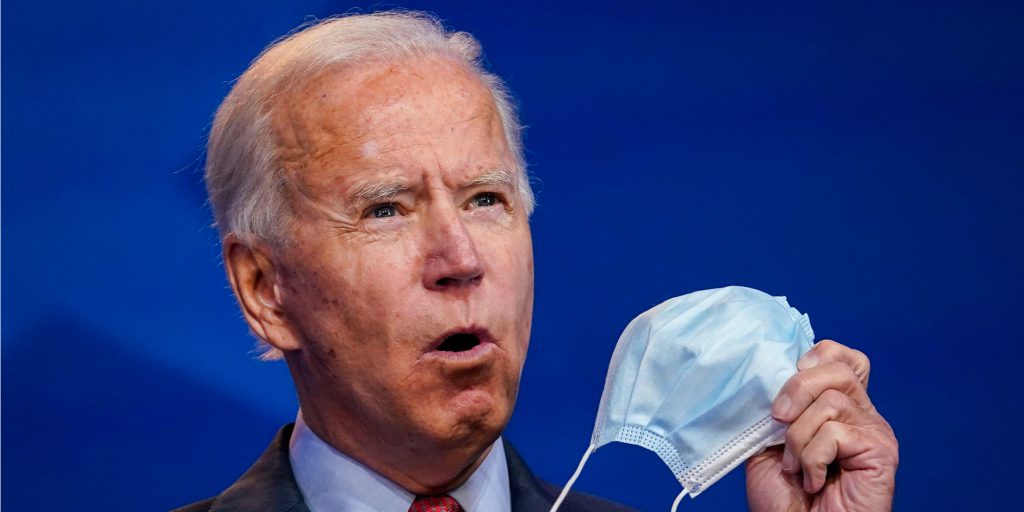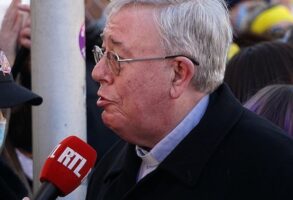
Published May 5, 2021
Michel Houellebecq is a very gifted French cynic. He’s also one of my favorite writers. His novels are very far from being Christian, but he has at least three redeeming qualities. He’s not “woke.” He enjoys needling the vanity of self-described progressives. And every once in a while, he sees and speaks the truth with a ferocious candor. In other words, unlike so many of our civic and cultural leaders, and regrettably some of our religious leaders, he’s not a coward.
A month ago, in the French national daily Le Figaro, he wrote an article with the title, “How France Lost Her Dignity.” His target was a euthanasia bill pending in the French National Assembly. Here’s what he wrote:
When a country – a society, a civilization – gets to the point of legalizing euthanasia, it loses. . .all right to respect. It becomes, henceforth, not only legitimate but desirable to destroy it; so that something else – another country, another society, another civilization – might have a chance to arise.
He continued:
Catholics will do their best to resist but, sad to say, we have more or less gotten used to the idea that Catholics always lose. [On societal issues,] Muslims and Jews. . .think exactly the same as Catholics; [but] the media are generally in strong agreement about hiding this fact. Thus, I do not have a lot of illusions. These faiths will end up by giving way and submitting to the yoke of “republican law”. . . .[So] let’s be honest about that.
The French have many great virtues, but humility about their homeland is not typically one of them. This makes Houellebecq’s indictment all the more striking. But as he suggests, let’s be honest. We too should be honest. And if we’re honest, his indictment could apply just as easily to current trends in our own country.
When our eldest son was accepted at West Point back in the early 1990s, I was very proud. I’m not at all sure I’d feel the same today, given some of the things that our nation now embodies. There’s still an immense amount of good in our country, and it’s worth fighting for. That’s part of our vocation as Christians. But if we take that duty seriously, then the deepest worry we should have for our nation and our Church in the coming decades is ourselves – the zeal, or lack of it, in those of us who are laypeople.
Surveys are treacherous things because their questions and interpretation can be framed in manipulative ways. Nonetheless, they can be useful. And what they say about the future of Catholic life in the United States is sobering. Many of us don’t really believe in the Real Presence, but we do really believe that if something called Heaven exists, we’re all going to get there, unless we happen to be Hitler.
Five or six years ago, along with other diocesan staff, I oversaw a study of practicing, Philadelphia-area Catholics. The percentage of active Millennial and younger Catholics in the Philly metro region was predictably low, and declining sacramental statistics of the last thirty years simply confirmed that. Some of this unraveling can be tracked to the clergy abuse crisis, which rightly shocked and angered a lot of people. But it’s also too convenient an alibi because the exodus started well before the crisis. The truth lies elsewhere.
Many of us live our faith mainly as a useful code of moral behavior and a healthy system of social ethics. But that’s not Christianity, and we don’t really need Jesus Christ or his Cross for any of it. Catholics in this country have historically been outsiders and unwelcome. And so we’ve worked very hard over the past century to be accepted into American culture. In a sense, that’s become our real religion. And we’ve succeeded exceptionally well at it – so well that many of us are much more faithfully “American” than we are “Catholic.” The result is predictable.
A lot of American life today is a blend of vanilla spirituality that doesn’t make many demands on our time and attention, and a practical consumer atheism that does. The decline in our Catholic numbers is simply the truth forcing its way to the surface through layers of self-deception that we’ve accumulated as a Church over half a century or more. The truth can be painful, but it’s never bad. The truth makes us free: free to change; free to remember who we are as Catholics and why we’re here; and free to do better.
This is why someone like Joe Biden is good news – not happy or comfortable news, but good news. Because in his appealing personality, his sunny smile, his reassuring words, and the duplicity of his administration’s actions, he embodies so much of our American Catholic moment. It was the author J.D. Vance, just a few weeks ago, who pointed out that since his election, President Biden has spoken, again and again, about the need for unity and healing, and then his administration’s actions have gone in exactly the opposite direction. That’s called lying. And lying, in one form or another, is the real virus, the real pandemic, infecting so much of American, including American Catholic, public life.
My point is this: What we choose or don’t choose, what we do or don’t do, does matter. Augustine said that being faithful in little things is a big thing, and the little things we do can sometimes have very big consequences. Our job isn’t to succeed, but to witness. Recovering a humility about our own silent apostasies, the need for our own deeper conversion, and clarity about the challenges for Catholic life in our country that lie ahead – these things begin the renewal of our Church and our nation. And we can thank our current media and political leaders for pushing that process along with the unintended gift of their malice and mendacity.
© 2021 The Catholic Thing.
Francis X. Maier is a senior fellow in Catholic studies at the Ethics and Public Policy Center and a senior research associate in Constitutional Studies at the University of Notre Dame. He served as senior aide to Archbishop Charles Chaput for twenty-three years.








